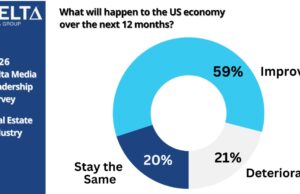Austin, Tex. – April 1, 2015 – (RealEstateRama) — At the National Hurricane Conference today, Insurance Institute for Business & Home Safety (IBHS) President and CEO Julie Rochman announced the release of the second edition of the Institute’s Rating the States report. The study assesses the progress of 18 hurricane-prone coastal states along the Gulf of Mexico and the Atlantic Coast in strengthening their residential building code systems since IBHS’ original 2012 report.
“Because building codes provide minimum design and construction standards, they are very important to the safety of our nation’s homes. When disasters strike, communities with strong, well-enforced building codes fare better than those with weak or no codes,” said Ms. Rochman. “When buildings are stronger and more resilient, property damage is greatly reduced, home and business owners are able to recover faster, the local economy and tax base are maintained, and the amount of government disaster aid is decreased. These are among the many reasons that communities should adopt and enforce strong codes before catastrophes strike.”
The 2015 edition of IBHS’ Rating the States report finds most states with strong building code systems in place at the time of the original 2012 report remain committed to building safety; they updated their codes to the latest model code editions, or are in the process of doing so, and maintained effective enforcement systems. Unfortunately, a number of states took no action to improve their code systems, and a few have weaker systems in place now than in 2012.
Below are the 2015 state scores, based on a 100-point scale, where 100 is the best available score:
• Virginia (95 points) • Maryland (78 points)
• Florida (94 points) • Georgia (69 points)
• South Carolina (92 points) • New York (56 points)
• New Jersey (89 points) • Maine (55 points)
• Connecticut (88 points) • New Hampshire (48 points)
• Rhode Island (87 points) • Texas (36 points)
• North Carolina (84 points) • Mississippi (28 points)
• Louisiana (82 points) • Alabama (26 points)
• Massachusetts (79 points) • Delaware (17 points)
IBHS evaluated 47 key data points to assess the effectiveness of the states’ residential building code programs, including code adoption and enforcement; building official training and certification; and licensing requirements for construction trades who implement building code provisions.
“One of the most important aspects of IBHS’ Rating the States Report is that it goes beyond evaluating each state’s code system to offer a clear roadmap with specific details for states to follow as they seek to update and improve their code systems,” Rochman explained.
In the case of high-wind events, such as hurricanes, research shows that modern building codes can make a difference in reducing the amount of storm-related damage. In fact, a study done by IBHS, the University of Florida and the FEMA Mitigation Assessment Team following Hurricane Charley, which struck Florida in 2004, found that modern building codes reduced the severity (cost) of insurance losses by 42 percent and the frequency (number) of insured losses by 60 percent.
The full 2015 Rating the States report with state-specific information and the original 2012 Rating the States report are available on the IBHS Rating the States web page. For additional information about building codes, visit IBHS’ Building Code web page.
###
About the Insurance Institute for Business & Home Safety (IBHS)
IBHS is an independent, nonprofit, scientific and educational organization supported by the property insurance industry. The organization works to reduce the social and economic effects of natural disasters and other risks to residential and commercial property by conducting research and advocating improved construction, maintenance and preparation practices.
Media Contact:
Tiffany O’Shea, Public Affairs Director, IBHS, at Phone: (512) 636-7811 (c) or Email:










